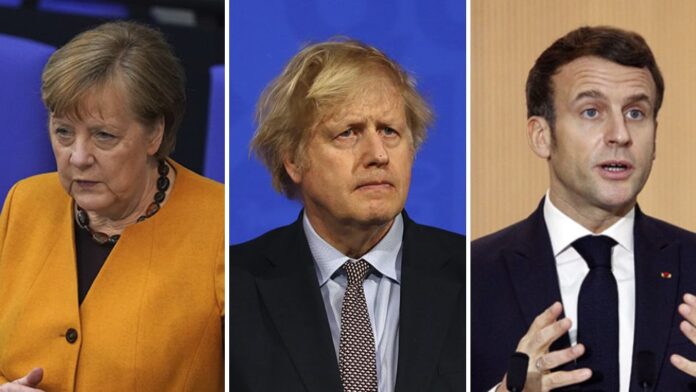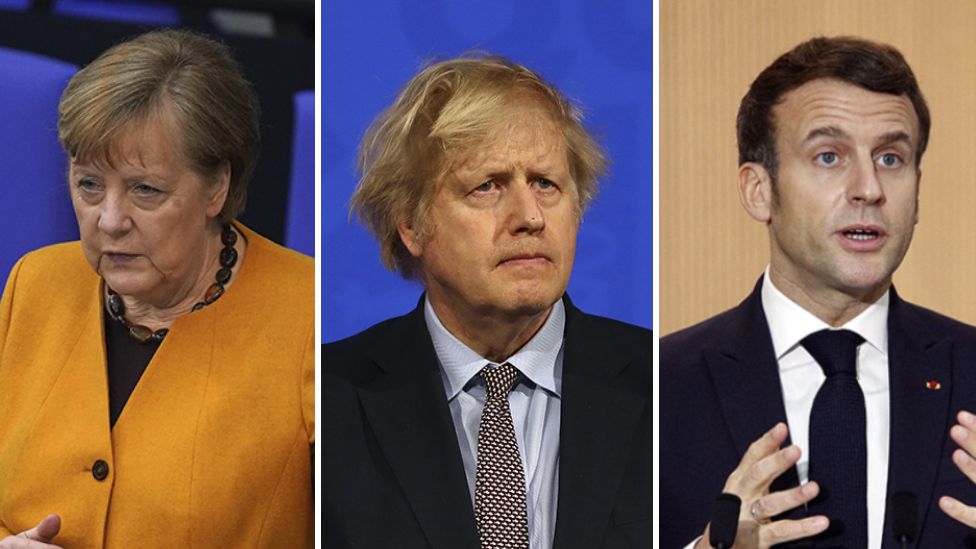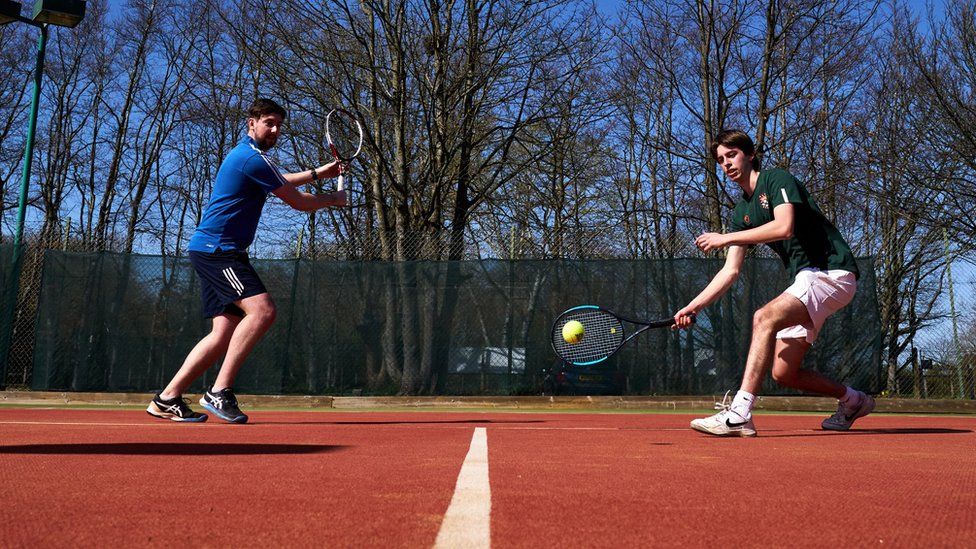

Prime Minister Boris Johnson has joined more than 20 world leaders in calling for a new global settlement to help the world prepare for future pandemics.
In a newspaper article the leaders, including the German chancellor and French president, said Covid posed the biggest challenge since World War Two.
The pandemic has shown “nobody is safe until everyone is safe”, they said.
Business Secretary Kwasi Kwarteng said the UK would need a surplus of vaccines before it could export supplies.
Writing in the Daily Telegraph and publications such as Le Monde in France and El Pais in Spain, the 24 leaders argue that a treaty similar to that reached in the wake of World War Two is needed to build cross-border cooperation.
The signatories, who include the head of the World Health Organization, Dr Tedros Adhanom Ghebreyesus, said: “At that time, following the devastation of two world wars, political leaders came together to forge the multilateral system.
“The aims were clear: To bring countries together, to dispel the temptations of isolationism and nationalism, and to address the challenges that could only be achieved together in the spirit of solidarity and co-operation – namely peace, prosperity, health and security.”
The leaders said that in the same spirit, countries must now “be better prepared to predict, prevent, detect, assess and effectively respond to pandemics in a highly co-ordinated fashion”.
A new treaty would help to establish better systems for alerting people about potential pandemics, they said, while also improving the sharing of data and distribution of vaccines and personal protective equipment.
“There will be other pandemics and other major health emergencies. No single government or multilateral agency can address this threat alone. The question is not if, but when.
“The Covid-19 pandemic has been a stark and painful reminder that nobody is safe until everyone is safe.”
The letter added: “At a time when Covid-19 has exploited our weaknesses and divisions, we must seize this opportunity and come together as a global community for peaceful co-operation that extends beyond this crisis.”
Dr David Nabarro, a special envoy on Covid-19 for the WHO, told BBC Radio 4’s Today programme that without “some kind of special action, the world as a whole will not be vaccinated until well into 2022”.
“During that time all sorts of problems with variants will emerge, and so all that leaders are saying is ‘this problem is so huge we’ve got to work together to deal with it’,” he added.
Mr Kwarteng told the programme that making vaccines available to other counties “can happen once we have a surplus of vaccines here in the UK”.
“There’s still a way to go. We’ve got to make sure we do everything we can deal with the pandemic and coronavirus in this country,” he said.
“But obviously we want to work in the spirit of co-operation as well, and when we do have surpluses we’ll be looking to export those, I’m sure.”

The joint article comes in the wake of disagreement between the UK and the EU over vaccines, after the bloc introduced tougher export controls on jabs produced there.
The UK and the World Health Organization warned against blockades, while the EU blamed pharmaceutical companies – primarily AstraZeneca – for not delivering promised doses.
AstraZeneca has denied that it is failing to honour its contract.
At a Downing Street briefing on Monday, Mr Johnson announced that tens of millions of doses of the Novavax vaccine would now be produced and packaged in north-east England.
The prime minister said a deal had been agreed with GlaxoSmithKline to bottle 60 million doses at its facility in Barnard Castle.
The original plan was for the “fill and finish” process – by which vaccines are packaged up in vials – to be done in Europe.
Novavax is currently being assessed by the Medicines and Healthcare products Regulatory Agency.
Also at the briefing, the PM said the UK did not know “exactly how strong” its defences against another wave of Covid would be despite its “impressive” vaccine rollout.
He was speaking as the stay-at-home rule came to an end in England, allowing groups to meet outdoors. Outdoor sport facilities, including swimming pools, tennis courts and golf courses, have reopened, while weddings are also on again.
Mr Johnson warned more deaths, infections and hospitalisations were inevitable as the UK comes out of lockdown.
But he also said he could not “see anything in the data right now that would cause us to deviate from the road map” of easing further restrictions.
From 12 April, shops, hairdressers, gyms and outdoor hospitality will reopen in England, if strict conditions are met.
A further 4,654 Covid cases were recorded in the UK on Monday, compared with 5,342 cases a week ago.
There were another 23 deaths of people within 28 days of a positive test, compared with 17 on the same day last week.
The latest figures show 293,542 UK adults received a first dose of the vaccine on Sunday, taking the overall number to 30,444,829 – with 146,785 having their second dose, bringing that total to 3,674,266.
SOURCE: BBC




